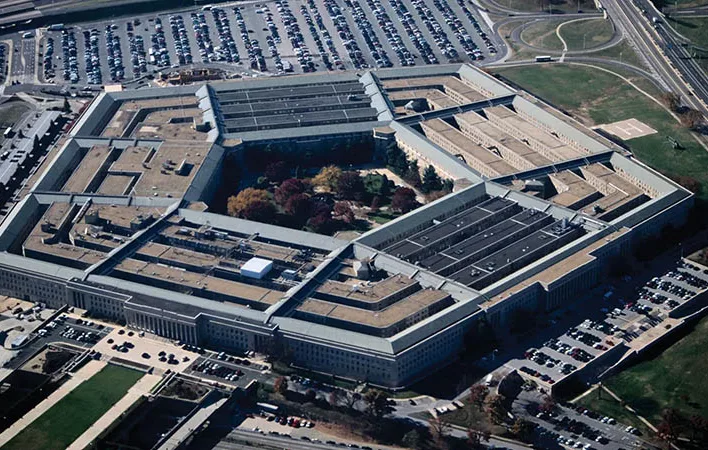Pentagon Reviews Don’t Ask, Don’t Tell Discharges

The Pentagon is reviewing punitive military discharges issued under the long-repealed Don’t Ask, Don’t Tell policy, which ended in 2011.
Under that policy, thousands of LGTBQ+ troops were given military discharges that denied them access to veteran benefits such as the GI Bill, health care, and government jobs, all because they were discharged for so-called “homosexual conduct.” Those veterans can have their discharges reviewed as part of a new DoD push to clear the names of those forced out of service due to Don’t Ask, Don’t Tell.
WGBH reports that more than 100,000 service members were discharged under the policy “because of their sexual orientation or gender identity.”
What Was Don’t Ask, Don’t Tell (DADT)?
DOD Instruction 1304.26, also known as the “Don’t Ask, Don’t Tell policy,” barred LGBT+ Americans from serving in the United States Military.
Officials attempted to write this policy with a pretense of including or offering protection from harassment and discrimination for being LGTBQ+, but some argue that an open prohibition against LGBTQ+ equals the harassment and discrimination DoD Instruction 1304.26 supposedly protected against. When the policy was repealed in 2011, it ended the legal prohibition against openly identifying as LGBTQ+ while serving.
Related: VA Resources for LGBTQ+ Veterans
Upgrading Don’t Ask, Don’t Tell Discharges
According to a Department of Defense press release, since the policy’s repeal, the DOD “has helped eligible veterans discharged because of their sexual orientation access the benefits they deserve,” with four out of five veterans applying for discharge upgrades being successful.
Those unfairly discharged because they are lesbian, gay, bisexual, trans, queer, or other statuses under the policy did have the opportunity to have their discharges upgraded and access to VA benefits provided, but the process was difficult to navigate. That is likely to change going forward thanks to the more proactive DoD effort.
All that before the most recent announcements of DoD upgrade policies. Some note that the DoD in the past seemed satisfied with a status quo with the burden of contesting a discriminatory military discharge back onto the victims of the policy. And while the fairness of that is in question, the new DoD policy represents a shift in focus–or at least making the process easier to navigate.
What the DoD is Doing To Upgrade DADT Discharges
Now, the Department of Defense is conducting a multi-faceted conducting outreach with partner organizations to those who may be eligible to apply for a discharge upgrade to urge them to start the process. But that’s not all.
On Sept. 20, 2023, the DOD announced it “will proactively review military records of veterans whose military records indicate their administrative separation was the result of their sexual orientation and who received a less than honorable conditions discharge.”
Furthermore, the DoD will hold a preliminary review “using existing personnel and current policy specific to veterans’ discharge because of their sexual orientation referred to frequently as the Stanley Memorandum to assess whether an upgrade in discharge is warranted.”
In cases where a discharge upgrade is warranted, the review board submits “names to the service secretaries for consideration and potential correction through the military department boards for correction of military records.”
The DoD has not indicated in early press materials whether or not the review includes an automatic upgrade to the discharge.
Most likely, that automatic upgrade will not happen (unless the DoD announces further modifications to the policy after press time), and the burden falls yet again on the servicemember to approach their branch of service for a discharge upgrade.
According to the DoD, “This new initiative will significantly simplify the process for DADT veterans.”
If you want a Don’t Ask Don’t Tell discharge upgrade, start by reviewing the DoD official site’s guidance for submitting a request for a military discharge review.
About the author
Editor-in-Chief Joe Wallace is a 13-year veteran of the United States Air Force and a former reporter/editor for Air Force Television News and the Pentagon Channel. His freelance work includes contract work for Motorola, VALoans.com, and Credit Karma. He is co-founder of Dim Art House in Springfield, Illinois, and spends his non-writing time as an abstract painter, independent publisher, and occasional filmmaker.


